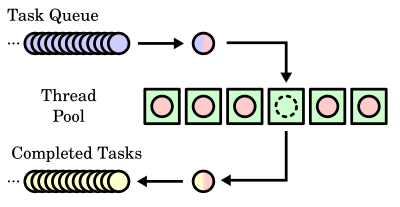Should i use ThreadPools or Task Parallel Library for IO-bound operations
In one of my projects that's kinda an aggregator, I parse feeds, podcasts and so from the web.
If I use sequential approach, given that a large number of resources, it takes quite a time to process all of them (because of network issues and similar stuff);
foreach(feed in feeds)
{
read_from_web(feed)
parse(feed)
}
So I want to implement concurrency and couldn't decide if I should basically use ThreadPools to process with worker threads or just rely on TPL to get it sorted.
ThreadPools for sure will handle the job for me with worker threads and I'll get what I expect (and in multi-core CPU environments, the other cores will be also utilized also).

But I still want to consider TPL too as it's recommend method but I'm a bit concerned about it. First of all I know that TPL uses ThreadPools but adds additional layer of decision making. I'm mostly concerned of the condition that where a single-core environment is present. If I'm not wrong TPL starts with a number worker-threads equal to number of available CPU-cores at the very beginning. I do fear of TPL producing similar results to sequential approach for my IO-bound case.
So for IO-bound operations (in my case reading resources from web), is it best to use ThreadPools and control the things, or better just rely on TPL? Can TPL also be used in IO-bound scenarios?
Update: My main concern is that -- on a single-core CPU environment will TPL just behave like sequential approach or will it still offer concurrency? I'm already reading Parallel Programming with Microsoft .NET and so the book but couldn't find an exact answer for this.
Note: this is a re-phrasing of my previous question [ Is it possible to use thread-concurrency and parallelism together? ] which was quite phrased wrong.